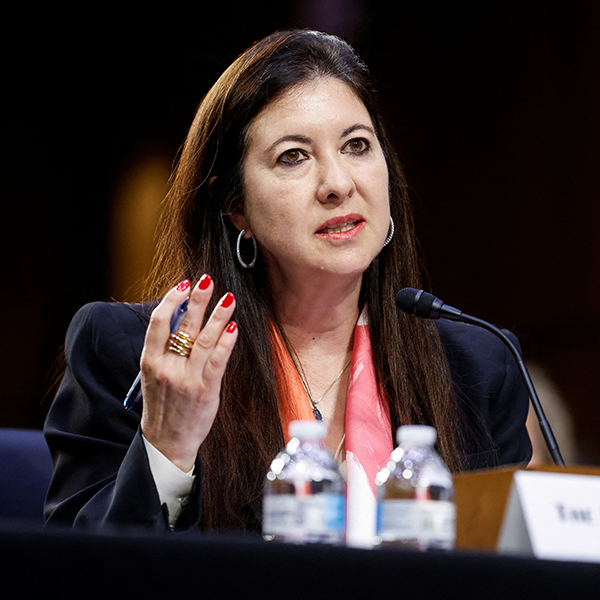Following last November’s federal election, when a rookie Member of Parliament from Winnipeg was appointed Canada’s Minister of Natural Resources, the head of the Canadian Association of Petroleum Producers had to Google the Manitoban’s name to find out who he was.
Jim Carr, BA’79, has since become very familiar to the Oil Patch, as he pursues a mandate from Prime Minister Justin Trudeau, BA’94, to develop a national energy policy in consultation with the provinces.The provincial premiers issued their own Canadian Energy Strategy in July 2015 under the stamp of their Council of the Federation. “We will be very respectful of the work the premiers have done,” says Carr, “and very respectful of the jurisdictional realities.”
While this fed-prov dialogue proceeds, Ottawa is overhauling the process of “how Canada determines which energy projects are worthy and which are not,” says Carr. That involves “reform of the National Energy Board (NEB) and more meaningful consultations with indigenous communities.”
Carr and fellow McGill alum, Environment Minister Catherine McKenna, LLB’99, were the key ministers in appointing expert panels to devise new rules for NEB hearings and for environmental assessments of projects. In January, they announced interim principles to cover pipeline projects currently under review, including TransCanada Corp’s Energy East proposal.
Ottawa is keenly aware of environmental opposition in Quebec to Energy East, the proposed 4,500-kilometre pipeline from Alberta to New Brunswick. Carr notes that the Quebec government is doing its own environmental assessment, while the NEB recently launched cross-Canada hearings on the project.
What the provinces conclude in their environmental assessments is “very important,” says Carr, “but ultimately these pipelines cross provincial territories, they’re regulated by the NEB and the decision ultimately rests with the Government of Canada.” Would the federal government impose Energy East on an unwilling Quebec? “That would be a very difficult situation,” he acknowledges.
The overhaul of the federal consultation mechanisms is intended to generate public confidence in the regulatory system, says Carr. “When it’s time for a decision, [we believe] most reasonable Canadians will say, ‘We’ve had a chance to offer a view. We think the government has properly conducted these hearings, and the decisions that they take are the result of good process.’”
Jim Carr’s first passion was not politics but music. He played the oboe in the Winnipeg Symphony Orchestra from age 16 to 21. With a Canada Council grant, he spent an academic year studying under Marc Lifschey, then principal oboist of the San Francisco Symphony. During that time, he auditioned for first oboist with Zubin Mehta’s Los Angeles Philharmonic.
“I was one of 98 oboists from around the world who auditioned,” recalls Carr. “I didn’t get the job. I realized that if I was going to excel as an oboist, it would require total dedication. At that time, I had too many other interests. So I went back to Winnipeg, played one more year with the WSO – and then I stopped playing the oboe for 25 years until I picked it up again.” (These days he plays in public at fundraising events.)
Carr was enrolled at the University of British Columbia in November 1976 when the Parti Québécois was elected in Quebec. “I was drawn to the dynamic of that election, what it meant for Canada. So I transferred to McGill, and did a joint honours program in history and political science.”
He says his experience at McGill and in Montreal was wonderful. “I had become serious about my studies. It was a stimulating academic environment. I had fabulous professors. I was taking French courses, and trying to live as much as I could in French.” The night before his last exam, Carr was offered a job in Winnipeg staffing the Manitoba government’s cultural policy review. “I came home and never left.”
In the early eighties, he tried his hand at journalism. He then ran for the Manitoba Legislature in 1986 as a Liberal candidate, losing to future Tory premier Gary Filmon. He ran again in a different riding in 1988 and defeated an NDP cabinet minister, becoming deputy leader of the Official Opposition.
Following redistribution, Carr won in a new riding in the 1990 provincial election. He resigned his seat in 1992 and joined the Winnipeg Free Press as an editorial writer and columnist for five years, then left to found the Business Council of Manitoba, a business advocacy group comprising 70 of the province’s CEOs. Carr headed the organization from 1998 to 2014.
Its two key aims were to encourage immigration to the province and to promote aboriginal post-secondary education. Immigration to Manitoba rose from 4,000 to 16,000 annually during that period, and the Council established a bursaries program for Manitoba’s aboriginal students. “You may say that’s social policy by a business group,” he says. “You can’t separate the two. Good social policy is good economic policy.”
Carr joined with several other think tank leaders back in 2009 to develop a framework for a Canadian energy strategy — something the premiers then further developed in the document they issued in July 2015. “The [Harper] government was uninterested [back then],” says Carr. “Now, the federal government is re-engaging the provinces [in energy strategy]. As history would have it, it’s my responsibility. It’s funny how the world works.”


